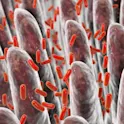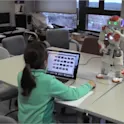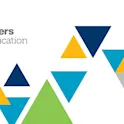Probiotics improve cognition in Alzheimer’s patients
In a randomized double-blind trial, scientists show for the first time that dietary supplementation with daily dose of probiotic bacteria over a period of just 12 weeks is sufficient to yield a small but significant improvement in the cognitive performance of Alzheimer’s patients. For the first time, scientists have shown that probiotics — beneficial live bacteria and yeasts taken as dietary supplements — can improve cognitive function in humans. In a new clinical trial, scientists show that a daily dose of probiotic Lactobacillus and Bifidobacterium bacteria taken over a period of just 12 weeks is enough to yield a moderate but significant improvement in the score of elderly Alzheimer’s patients on the Mini-Mental State Examination (MMSE) scale, a standard measure of cognitive impairment. Probiotics are known to give partial protection against certain infectious diarrheas, irritable bowel syndrome, inflammatory bowel disease, eczema, allergies, colds, tooth decay, and periodontal disease. But scientists have long hypothesized that probiotics might also boost cognition, as there is continuous two-way communication between the intestinal microflora, the gastrointestinal tract, and the brain through the nervous system, the immune system, and hormones (along the so-called “microbiota-gut-brain axis”). In mice, probiotics have indeed been shown to improve learning and […]














